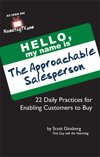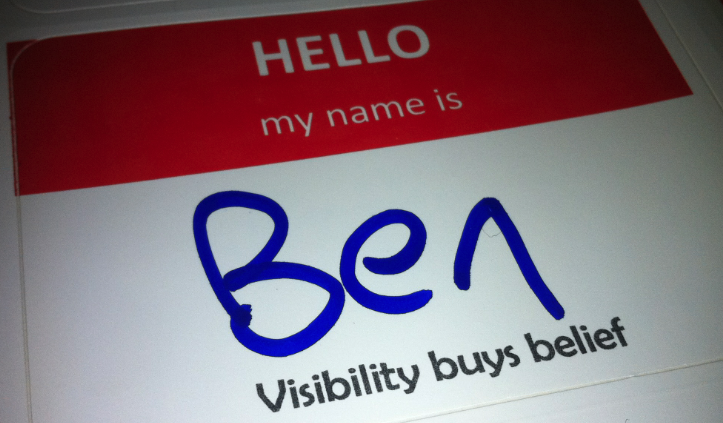Not everyone is looking for an answer.
When people turn to you, sometimes all they want is a response.
Here’s the difference:
When you give answers, you fix.
When you give answers, you offer advice.
When you give answers, you try to be right.
When you give answers, you add unnecessary value.
When you give answers, you dominate the discussion.
When you give answers, you impose your own direction.
When you give answers, you rob people of the learning experience.
IN SHORT: You speak from a place of information.
But.
When you offer responses, you dance in the moment.
When you offer responses, you acknowledge their truth.
When you offer responses, you leave people feeling heard.
When you offer responses, you practice emotional restraint.
When you offer responses, you let people learn things on their own.
When you offer responses, you reflect people’s immediate experience.
When you offer responses, you get out of the way and give people space to process.
IN SHORT: You speak from a place of affirmation.
Here are a few ways to respond – not answer – someone who turns to you:1. Respond with reflection. I once dated a woman who was undergoing a career transition. One afternoon while complaining about her idiot boss, I defaulted to coach mode and starting dispensing answers. Huge mistake. She interrupted and exclaimed, “I don’t need you to help me – I need you to bitch with me.”
So I did. We had a bitchfest. And admittedly, it was kind of fun. Almost like a game of improv. Point being, even if complaining isn’t your preferred method for dealing with problems, if it’s the response people need most, you have to honor that request. Otherwise your desire to fix, be right and look smart becomes a barrier to being helpful. Are you a human mirror?
2. Respond with nothing. Don’t turn from silence – it’s the gateway through which life’s most profound insights enter. Next time someone comes to you, be careful not to talk just for the sake of talking. Sometimes the best thing you can say is nothing at all. Sometimes the best response is to hold someone’s hand, look at her with compassionate eyes and remind her that she’s not alone.
In that moment, silence serves as a permission slip. It creates the space people need to slow down, process their thoughts and examine the nuances of the story they’re telling. Are you willing to accept silence as a normal, healthy part of your conversations?
3. Respond with wow. Not saying the wrong thing at the wrong time is equally as important as saying the right thing at the right time. Especially in highly emotional situations, the last thing you want is to make the other person think, “You’re not helping.”
Instead of dispensing bumper sticker platitudes, rote responses, disrespectful minimizers, empty promises or false empathy, just say, “Wow.” It’s the most versatile word in the English language. It acknowledges people’s emotions. And it buys you time to think of what to say next. Are you short-circuiting people’s emotional realities?
4. Respond with questions. Some questions aren’t questions – they’re matches. And often times, that’s what people really need: Someone to infect them with just enough fuel to uncover their own answers. Someone to pump up the volume of the voice they most want to be quiet. And someone to help them connect the dots, see beyond what is, and feel a greater sense of self-achievement.
Just be sure not to ask too many questions. Otherwise you’ll override people’s mental motherboards and smoke will start coming out of their heads. Next time someone turns to you, don’t overlook the value of asking one disturbing question – and shutting up. Are you a question mark?
5. Respond with paper. Taking notes respects people’s thoughts. It shows them their words have weight. And it honors the profound human longing to be seen and feel heard. What’s more, it’s the most expressive, honest and organized way to respond to someone without dispensing advice. Especially if you physically hand someone your notes after a few minutes of listening.
Let them see their own words reflected back to them. It’s an affirmation, confirmation and validation of their personal truth. Because paper doesn’t lie. Plus, now you have a record of the conversation just in case a person does. What did you write today?
REMEMBER: Just because you’re a good listener doesn’t you leave people heard.
Next time someone turns to you, try offering a response.
Because not everyone wants an answer.
LET ME ASK YA THIS…
Can you practice enough emotional restraint to respond instead of answer?
LET ME SUGGEST THIS…
For a list called, “7 Ways to Out Experience the Competition,” send an email to me, and you win the list for free!
* * * *
Scott Ginsberg
That Guy with the Nametag
Author, Speaker, Entrepreneur, Mentor
[email protected]
 Sick of selling?
Sick of selling?
Tired of cold calling?
Bored with traditional prospecting approaches?
Buy Scott’s book and learn how to sell enable people to buy!
Pick up your copy (or a case!) right here.

 Wearing a nametag is surprisingly polarizing.
Wearing a nametag is surprisingly polarizing. It’s amazing.
It’s amazing.
 “I could never wear a nametag everyday!”
“I could never wear a nametag everyday!”